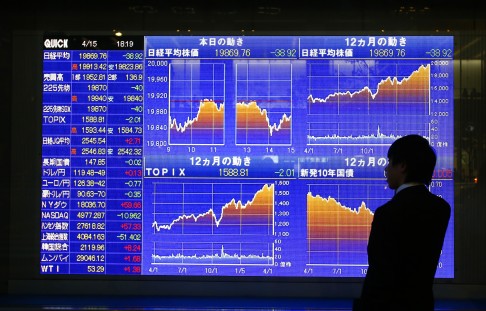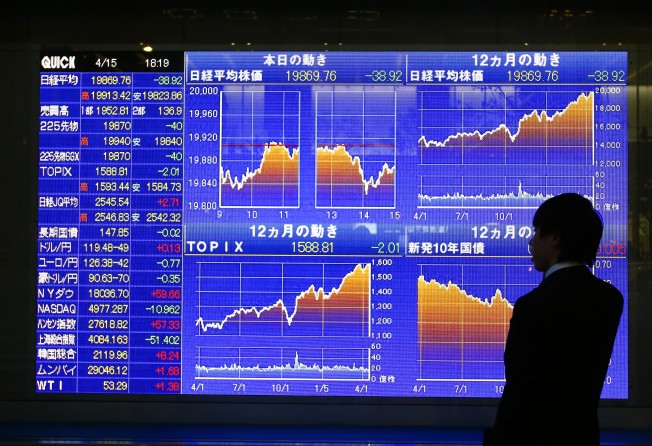
Hong Kong start-up to bet millions on hedge fund run by artificial intelligence

A financial tech start-up based in Hong Kong will soon launch a hedge fund in the US managed by artificial intelligence.
Ben Goertzel, co-founder and chief scientist of the venture, called Aidyia, said the fund will start small but will grow dramatically when it starts trading in US equities in June.
“We’re going to start trading real money in June,” the artificial intelligence expert and former academic said in a recent interview in his office in Kwun Tong, Kowloon.
Aidyia’s artificial intelligence computer will predict price changes based on a host of data, including prices and volumes, news and social media data in various languages and other economic and accounting data at national and company levels.
The application of artificial intelligence to financial markets is not new, with a number of funds in the US currently using various AI technologies for forecasting.
Cerebellum Capital, Rebellion Research and Quantitative Investment Management are among the more successful. Hedge fund Renaissance Technologies also has a significant AI component to its activities.
Chinese search engine company Baidu Inc also launched in February a stocks app using artificial intelligence to predict how stocks, sectors and markets may perform.
Aidyia’s technology will aim to predict stock price movements over a longer term, in contrast to many other quantitative finance technologies which are more focused on short-term forecasts. It will also learn from what did and did not work so that it can “manage” its portfolio.
“If you’re trying to predict five minutes in the future, you’re pretty much just looking at the ups and downs in a price curve. If you’re trying to predict months in the future, all sorts of factors can affect the stock price,” Goertzel said.
“The AI sifts through the data and each day makes predictions: which stocks are going to go up, which stocks it doesn’t know anything whatsoever about. And based on that the AI issues buy and sell orders each day and manages its own portfolio,” he said.
IHistorical tests spanning the period between 2003 and 2014 have yielded returns of about 29 per cent per year, he said, though performance varied from month to month. A real-time simulation since November 2014 has performed consistently with this. The technology fared better in the US market than in Hong Kong in the tests, a result Goertzel attributed to a limited number of liquid stocks and higher trading fees in Hong Kong.
The initial funding will come from the co-founders, many of whom are entrepreneurs or former bankers. The firm will solicit money in the future as it expands the scale of the fund and launches others.
The US equity long/short fund will be the first and there are plans to launch a global macro fund by the end of the year. A China long-only fund remains just an idea at this point, Goertzel said.
Goertzel founded Aidyia with Brazilian Cassio Pennachin and four others in 2011, basing it in Hong Kong because all six “are married to Chinese women”, he said.
It specialises in artificial general intelligence, a branch of AI that has machines mimicking the human brain’s breadth, depth and generality of understanding, so that intelligence and knowledge can be applied and transferred.
He predicts that in five to 10 years, sovereign wealth funds, pension funds and other large investors will be putting money into funds traded by intelligent machines, instead of quantitative software. Over the longer term, institutional investment and trading decisions would follow suit, he said.
“The human mind has many strengths, but ultimately lacks the memory, calculation capability and breadth of information integration to keep up with AI systems in the context of analyzing, understanding and predicting modern financial markets,” he said.
“In the end it’s going to be viewed as irresponsible to entrust trillions of dollars to some emotional human being,” he said.